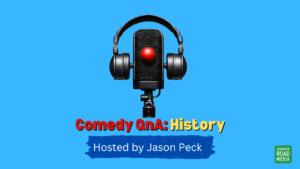There are occasionally times that our speaking in public we will be a reading. This may occur in a situation like a wedding or a funeral.
You could be asked to read from anything including, but not limited to, Shakespeare (his plays or sonnets), poetry, prose (novels, short stories, etc), theatre play-scripts and so on. I’ll provide you with a few sources where you can find examples of text to read out loud to a friend… you know for practise.
If you are a member of Toastmasters International one of the advanced manuals is actually an interpretive reading manual.
Reading or interpreting text out loud is easier than it sounds. I’m going to highlight some of the pitfalls that I have come across and try to provide appropriate solutions too.
Pitfalls
You have to make sure that you understand the piece that you’re reading and the context within which it exists. The may seem an obvious point, but it is worth me being explicit about it.
What can happen, and this is a problem for anyone who has had acting training or is a member of Toastmasters, is that the reading becomes a vocal exercise.
When asked to read something out loud, you can get too focused on the way your voice sounds, whether you are using your full range and articulating the text clearly.
As a result the meaning often gets lost. It becomes more about your vocal dexterity rather than the message or meaning for the audience.
Remember, even if you are reading out loud, it is still all about your audience. Whether it’s a play or a sonnet there is still a point that needs to be conveyed. Although sometimes it’s easier to see what that is than in a poem.
By understanding the content, and the context, you are able to understand and convey the emotion of the characters whose dialogue you may be reading out.
If you understand the intention of the characters in the scene or poem, and work to convey that then the emotion will be conveyed through the text.
The Bard
If you’re reading from Shakespeare here’s a word of warning… it’s easier to get wrong than it is to get right!
I’m not going to spend too long discussing how to interpret the Bard, suffice it to say you should really do some background research before tackling one of his pieces.
I can recommend two great books that helped me enormously before the Shakespeare plays that I performed in; one was “Playing Shakespeare” by John Barton. The other was “A Shakespeare Glossary” by C.T. Onions, which provides modern-day interpretations of words.
Okay, alright, I’ll throw in a third. Try to get hold of “The Empty Space” by Peter Brook. He talks a lot about how easy it is to do Shakespeare badly. Obviously, you want to avoid doing it badly and he provides lots of useful advice.
You should also take the time to translate the language into your modern day native tongue. If English isn’t your first language, then you may have to go via modern English first. Unless of course, you can source one in your own language which you more than likely can. Even if you speak Klingon!
There are tremendous clues that Shakespeare left us in the text of the plays that help with the delivery. The Barton book can really help you discover what they are. There are things like picking up cues, when to breath in the text and so on. You do breathe when you read out loud, don’t do?
Some of my old acting teaching would probably throttle me for saying this, but when you read out Shakespeare (in a situation that isn’t a wedding or a funeral) remember that you should try to entertain your audience too.
If you’re going to stand there and badly recite one of Shakespeare’s tragedies then you are likely to lose your audience and help to perpetuate the notion that Shakespeare is boring. (If he was his plays wouldn’t be performed more than 400 years since he wrote them).
Watch a movie if it helps you. There are plenty of them on film, Baz Luhrmans’s film of “Romeo & Juliet”, Mel Gibson’s “Hamlet”, Kenneth Brannagh’s “Hamlet” and “Much Ado About Nothing”. By seeing how the pros interpret certain scenes can enormously help you with your own.
Emotion
This is always a tricky one, especially for an actor. But I have seen time and time again speakers trying to convey the emotion of a character in a play or a novel only to come across as the worst kind of hammy actor imaginable.
It can be so bad it’s laughable and if you’re not doing a comedy then that’s problematic.
My advise would be to steer well clear of any piece that requires heightened emotion. Shakespeare is full of them. There’s always high drama, battles with the Gods, or demons and so on and so forth.
They are challenging enough for a trained actor it’s like doing an aerobic workout for 2 and a half (or 3) hours. So it’s best to leave well alone if you can. Unless you know what you are doing then you will not do yourself any justice.
General Pointers
Whether you’re reading from a play or a novel make sure that you are really familiar with it so that you don’t need to refer to it. If you get lost then you know exactly where you are in the text and can carry on.
It is much better to have book in hand rather than reading from a lectern or a music stand. Both are not only cumbersome but can be a mental, as well as physical, barrier between you and your audience. I recently experimented with using a lectern and felt awkward behind it as it’s not something I use.
Remember, connection is king so you still need to connect to your audience whether you’re giving a speech or reading from a book.
So practice looking up from your book so that when the time comes you can give your audience eye contact. By being really familiar with the text, having the book with you becomes more of a useful prop rather than a crutch. Run your finger down the text as a guide, but you shouldn’t need it.
If you’re a Toastmaster and you are having to interpret someone else’s speech as per the manual, then try to watch or listen to a copy of the original. You will notice that the message is conveyed and, depending on the speech, genuine emotion is there.
I’m not saying that you need to copy what has gone before you, but it will give you an idea of how it worked in its original context, doing this will also help to steer you away from just doing a vocal exercise.
This would also have to be memorised as well. But I hope that goes without saying…? If you’re giving a reading outside of Toastmasters, you might try memorising the passage. That could work better in case you’re concerned about losing your place. Check out my post Memory Hack.
Like with a regular speech (if such a thing exists) you will need to put in time to rehearse. LOTS.




2 comments
4 pings
To elaborate on the power of “looking up from your book”
make a point of looking at different parts of the audience each time, pausing for what seems like a long time (2 seconds)
to look at one person in one sector of the audience.
At least 10 people around her or him will feel you are looking at them and feel connected to you.
Sometimes look at 3 people – on on the left, one in the center and one on the right in a “zig zag” – that is looking up front then further back at the next person, etc.
This is also a good way to start – looking at 3 – 4 people in different parts of the audience, engaging them with a warm face or smile, so that as you first look down they will continue to feel connected – and you will feel more at ease with them
Author
Hey Kare,
Thanks for dropping by. Those recommendations are great. Very specific. It will be certainly useful for myself and the rest of my readers in the future.
I spoke about the zig zag, or Z technique in an older post. You could also use an M as well.
Cheers
[…] Peck concludes that it’s easy to read aloud (e.g. a poem or short story). Whether you’re reading from a […]
[…] Read the entire article at “Could you read this out loud for me?” | Pro Humorist. […]
[…] “Could you read this out loud for me?” | Pro Humorist – […]
[…] http://prohumorist.com/?p=222 […]